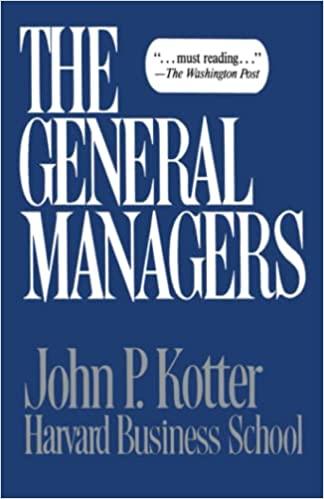Question
1. Why do companies engage in M&A? To get into new markets To get access to new capabilities Acquirer has strong experience in M&As All
1.
Why do companies engage in M&A?
To get into new markets
To get access to new capabilities
Acquirer has strong experience in M&As
All of the above
2.
Acquirer companies can do well in an acquisition for all of the following reasons EXCEPT:
Winner's curse
Better information about the target than others
Luck
Specific synergies with the target
3.
Which of the following is NOT a type of divestiture?
Asset sales
Unit Sales
Spin off
Split off
Carve out
4.
As an intermediate alternative between being fully integrated ("make") and transacting in the market ("buy"), two firms can enter into an agreement whereby they create a third firm that they co-own and contribute resources. Such an agreement is typically classified as a/an:
Equity alliance
Joint venture
Franchising agreement
Licensing contract
5.
When a parent company creates two new companies and its shares are distributed to the parent's shareholders, it is called a/an
Alliance
Spin off
Unit Sales
Split off
6.
Strategic alliances include all of the following, EXCEPT:
Relational contracts
Acquisitions
Joint Ventures
Technology licensing arrangements
Equity Alliances
7.
Companies form alliances for each of the following reasons, EXCEPT:
For greater coordination and control relative to M&As
To learn from their partner
To access new markets or capabilities
To mitigate risks
Step by Step Solution
There are 3 Steps involved in it
Step: 1

Get Instant Access to Expert-Tailored Solutions
See step-by-step solutions with expert insights and AI powered tools for academic success
Step: 2

Step: 3

Ace Your Homework with AI
Get the answers you need in no time with our AI-driven, step-by-step assistance
Get Started


